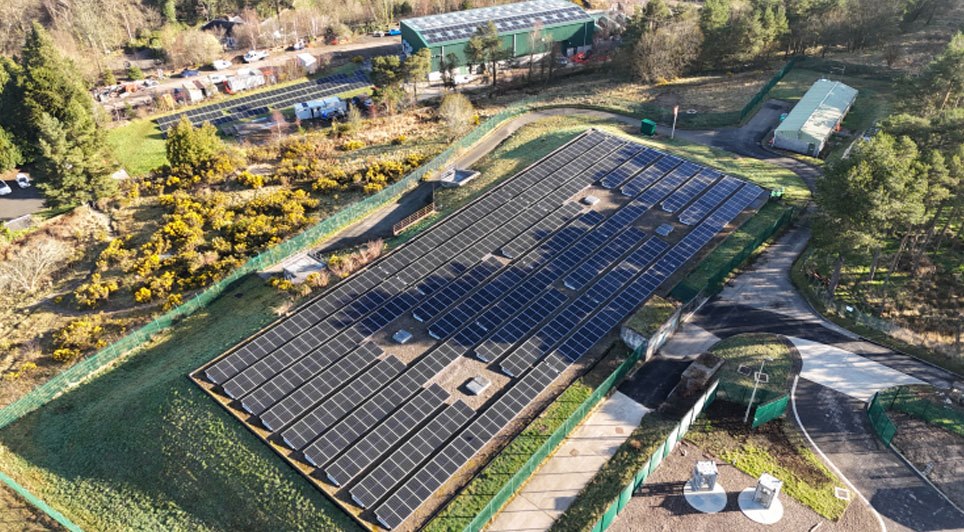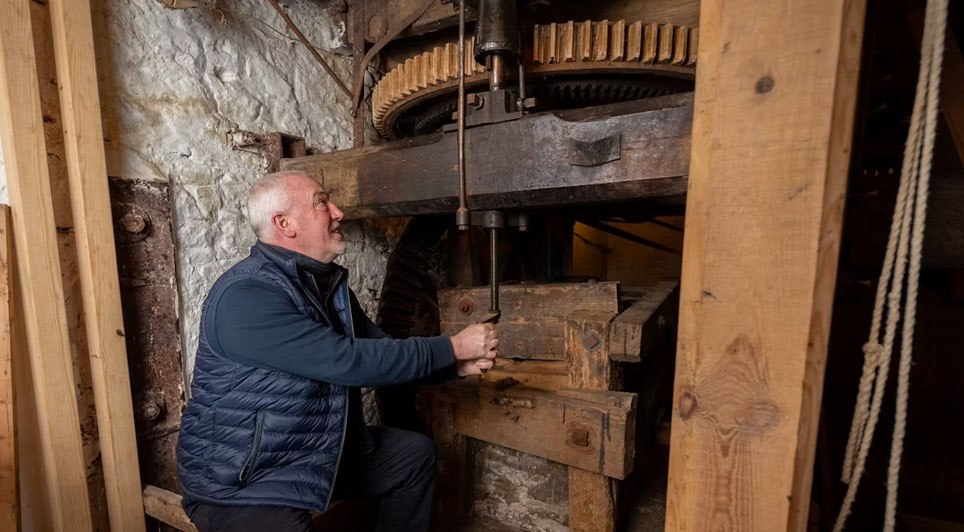'Evolution not revolution' will deliver an energy market fit for a low-carbon future, ScottishPower Renewables' Policy and Regulation Director, Kate Turner, has said.
Addressing the UK government's ongoing 'Review of Electricity Market Arrangements', which aims to ensure that the design of the electricity market is fit for the purpose of maintaining energy security and affordability for customers alongside the transition to Net-Zero – Turner said: "A low carbon-based energy market of the future will address some of the key issues we're seeing today – improving energy prices, energy security, flexibility – and puts a low-carbon green electricity market as the backbone of the energy system.
"While it sounds simple, this will be a mammoth undertaking and there are lots of differing views as to how we get there. One of the more controversial proposals is to move to Locational Marginal Pricing (LMP) – where wholesale electricity prices would vary between different network nodes or zones.
"While in some quarters, LMP is being presented as a silver bullet, a recent report (opens in a new window) from the University of Strathclyde (UoS) provides useful insights into the risks and challenges it would bring as part of wider GB market reform. Crucially, it highlights the need for careful consideration before any changes are made.'
Turner said that Locational Marginal Pricing (LMP) would mean moving away from the current uniform wholesale electricity price within GB.
She continued: "In addition to changing pricing, a transition of this magnitude would have knock on effects on many industry arrangements that incentivise investment in low carbon generation and security of supply via CfD and the Capacity Market.
"As the report highlights, with no 'off-the-shelf' solution for a new LMP market structure, the system would essentially need to be 'reinvented', which would require some of the most radical reforms for more than 20 years. So, we need much more quantitative analysis of how this will impact generator investment costs and confidence, as well as investment in transmission infrastructure, before making any decision regarding the suitability of LMP.
"As we know, the UK Government's ambition is to decarbonise the electricity system by 2035. The level of change that would be required to support a move to LMP – scoping, developing and testing as well as time and resources to investigate its impact and implementation before any decision is made – could put this ambition at risk.
"Current estimates suggest a timeline of between four and eight years to implement LMP, which could result in an investment hiatus. So, where does that leave us in terms of our thinking about LMP?
"For all future reform options, it's important to recognise the potential associated benefits as well as the risks and consider if there are less disruptive and cheaper alternate options available.
"LMP could theoretically deliver improved signals to generators about where to locate, which is contrary to the approach of the location of renewable generators being more dependent on the availability of natural resources.
"However, reform to the current Transmission Network of Use system charging methodology, improving current dispatch models to be more granular and developing flexibility markets could offer similar benefits, while improving cost reflectivity and predictability of charges at the same time without the same level of risk.
"So, there's lots to think about and we need to ensure alternative reform options are also considered alongside wider debates – not least around planning reform and energy security. The UoS report as well as a recent Frontier Economics study (opens in a new window)are useful in adding depth to the ongoing discussion and it is essential this continues.
"Mindful of the significant impact on the overall GB electricity market, low-carbon investment and consumers of any potential reforms, it is clear we require additional quantitative analysis to further inform the debate.
"When considering future reform options, GB industry should not be seduced by radical and untested ideas, but should focus more on incremental improvements. That means evolution not revolution."
Construction News
03/02/2023
'Evolution Not Revolution' Needed For Low-Carbon Future


16/04/2025
Construction work on the £5 million repair and refurbishment project at the Loch Centre in Tranent is scheduled to commence in June 2026.
East Lothian Council has announced the anticipated start date for the significant upgrade to the well-used community facility.
Under the current timetable, the

16/04/2025
A £636,000 project to install solar panels at the Gorbals water pumping station in South Ayrshire has been successfully completed.
The scheme aims to provide a renewable energy source for pumping water to thousands of customers in the region.
The project involved the installation of 793 solar pan

16/04/2025
A planning application has been lodged with Glasgow City Council by The JR Group, acting on behalf of Wheatley Group, for the construction of 29 much-needed affordable homes in the Baillieston area of the city.
The proposed development on Caledonia Road will offer a mix of one- and two-bedroom apa

16/04/2025
Residents in 20 blocks of flats across Coatbridge are already experiencing the positive impacts of a recently completed, ambitious energy efficiency refurbishment project.
The extensive construction work has delivered significant improvements to the properties, including the installation of cavity

16/04/2025
Ground investigation works are commencing this month at the proposed site for Orkney Islands Council’s Scapa Deep Water Quay at Deepdale in Holm.
These initial investigations will be followed by marine-based site investigation works scheduled to begin in June.
These works form part of the Pre-Con

16/04/2025
Construction work has been finalised on a significant new housing development in Motherwell town centre, delivering 42 newly built, highly energy-efficient flats alongside the respectful conversion of the B-Listed YMCA building into a further six homes. The project, part of North Lanarkshire Council

16/04/2025
The Construction Industry Training Board (CITB) has today released its year-end performance data for its New Entrant Support Team (NEST), revealing a significant increase in apprenticeship starts. During the financial year 2024-25, NEST supported 4,128 individuals in commencing apprenticeships, a su

16/04/2025
A water-powered mill in Angus is set to grind grain once again after receiving a record-breaking donation to fund its restoration.
The National Trust for Scotland has announced that a long-time member of the conservation charity has gifted an incredible £2.4 million, one of the largest single dona

15/04/2025
Construction of a £70 million student accommodation development at 292-298 St Vincent Street in Glasgow has reached a significant milestone, with the building now visibly rising from the ground.
Drone footage has captured the progress of the project, which is a partnership between developer Artisa

15/04/2025
Energy regulator Ofgem is expected to confirm today (April 15) its finalised Connections Reform process, designed to expedite grid connections for renewable energy projects that are ready and crucial for achieving the UK's clean power targets for 2030 and beyond.
The new connections system, anticip
 Scotland
Scotland UK
UK Ireland
Ireland London
London











